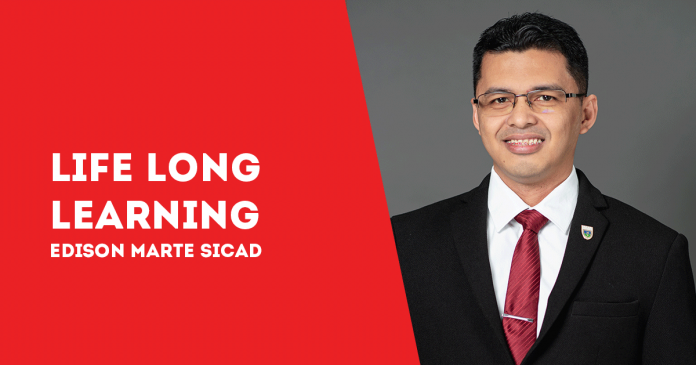
BY EDISON MARTE SICAD
Q: “Why does DepEd have a P150M intel funds?”
A: “Either the officials lack intelligence, or the administration outsmarted the Filipino voters. It is just a matter of perspective.”
“We see things not as they are, but as we are.” – paraphrasing Anaïs Nin
This saying is as controversial as the author herself. For the people knew her based on what she wrote. And the public judged her based on how she lived. Confusing as it may sound, the puzzling treatment she got from others is somehow a manifestation that people still value coherence: we should practice what we preach—but in the literary world, the reply would always be “It is just a matter of perspective.”
For despite the power of words and the skill of writers, a person’s life cannot entirely be put into writing. And an author’s life cannot entirely be separated from his or her writings—or so we thought. This is where meaning and context become debatable or relative. This is where interpretation gets dangerous.
A book can become a boon or bane in the reader’s hand—or mind. There are even incidents where the readers dictate the course of an author’s direction about storytelling including the background of the characters. Or an author subjected to death threats (fatwa) for a fictional work that was literally taken into heart by a powerful political and religious leader.
That’s why I would often hesitate giving advice about what book to read. When asked, I would reply with caution, “Read any book you want. But be careful with what you are reading.” For books can change (pun intended) readers and readers can influence writers—again, it is just a matter of perspective.
Reading requires maturity and responsibility. Ideas abound anywhere and can now be personalized by algorithms. We get to read what we only want to read. This can also be called confirmation bias. In other words, we are always right. We hate it when we encounter facts that are contrary to our beliefs. It lowers our perception of self and unfortunately, we would hate the writer for it.
In our make-believe certainty, our chosen books give us the freedom to strengthen our ideas. But such security is also dangerous. Remember, prison bars also meant security. That’s why, inasmuch that the truth can set you free, your mind can also imprison you, setting you lock away from a bigger world; keeping you safe just like in the Allegory of the Cave: interpretation (cave) versus reality (outside).
But I like it when I am proven wrong. To be proven wrong and then recalibrate for better result is a scientific process. Experiments are done again and again until the outcome can be fully validated and thus become concrete and final. But when it comes to ideas or thinking, it is more dialectic than didactic. That’s why a person who reads a lot and knows how to effectively speak and write is both powerful and dangerous.
Ideas do clash. Almost all the “-isms” that run our institutions are based on a certain way of doing things that can determine or question governmental priorities.
Question: “Why does DepEd have a P150M intel funds?”
Answer: “Either the department lacks intelligence, or the administration outsmarted the Filipino voters. It is just a matter of perspective.”
This political jibe may have some truth in it. And that’s the thing, “some truth in it.” Isn’t it that the serpent was also somehow truthful to Eve? You may even ask, “Did God know that the serpent was freely hissing around in the Garden?”
IN CLOSING, try to read the following books: Theology and Sanity by F.J. Sheed and Atheism Explained by David Ramsay Steele. I am juxtaposing these books as a suggestion to emphasize the power of words and context. I am also challenging (and cautioning readers) to read books with the intention of opening their eyes to a “wider world of experiences” that only the printed material could bring. Or not. Again, it is just a matter of perspective./PN





